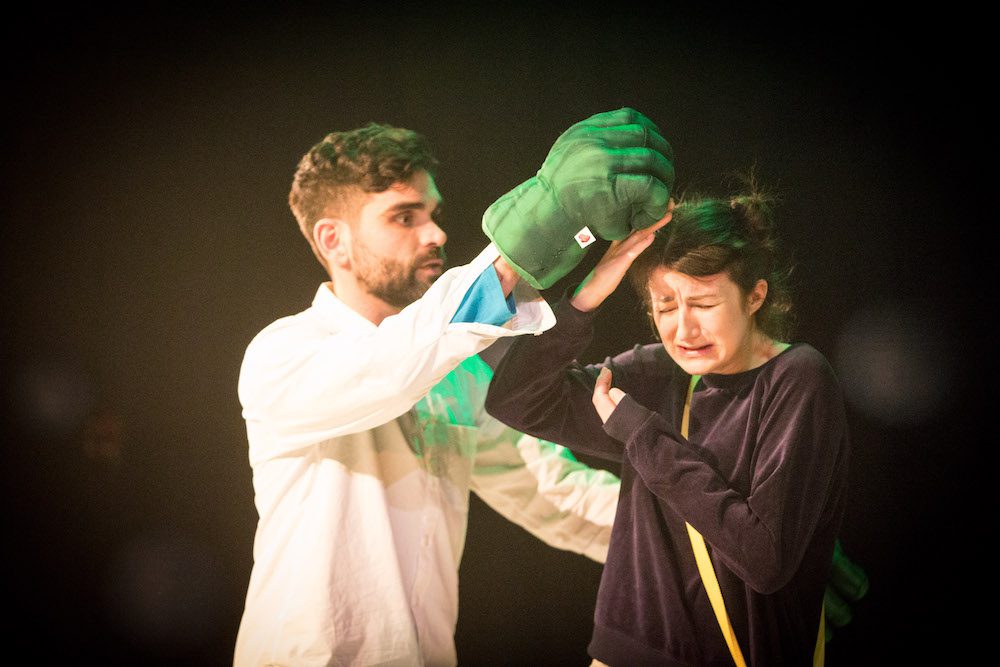When reviewing theatre there are several different approaches one can take.
There is a more traditional assumption that one should go in tabula rasa taking a blank state approach to the material presented – trying to keep your own priors out of your reaction to the piece.
A more recent trend seems to be to not just take your priors into the review, but also take into account the intent of the authors, whether or not they have fully realised these artistically. Judging the issues a piece raises as much as the drama presented.
The truth is that we all probably do a little bit of both, and it is in this grey area that my reaction to Supernova sits. This is a play I enjoyed and that made me think and react a great deal. But I am very interested to know if my response to it was that intended by playwright (and one of the two lead actors) Rhiannon Neads. I am genuinely unsure. But I am equally unsure whether that is what matters.
The reason I raise all of this is that I think there might be a real generational difference in response to this play between those of my age – Gen X – and those in the generations below mine – Millenials and Gen Z.
Supernova starts with a classic ‘boy meets girl’ moment. Tess and Harry (Sam Swann) get talking outside a costume party and, while she is initially standoffish, they hit it off and start to see each other. in the first half of the play, we watch their relationship build sweetly and rapidly as they come to live together and fall deeply in love.
But even as they come together, Tess is falling apart. Her depression – hinted at the start – comes to the fore. She becomes increasingly agoraphobic and insular. Her inability to see her own worth rebounds on Harry as she is increasingly hostile to his love for her – rebuffing his romantic gestures and increasingly angry at what she sees as his lies when he compliments her and tries to express love and affection.
Here is where I think that the generations may diverge in their emotional response to the play. I saw it with my best friend who is the same age as I am and our immediate reaction was how much we ended up disliking Tess. We found her difficult and annoying and our sympathies lay entirely with the put-upon Harry. However, this would probably be seen as a deeply problematic – however emotionally honest – response to a person who is clearly suffering even as she is self-sabotaging.
Supernova is an extremely well written portrait of depression and its impact on a relationship. Harry, in his role as a sweet everyman, is almost a cypher for the audience as he desperately tries to make his relationship with a spiralling Tess work. As he is pushed further and further away from her, he starts to recover his own life.
Neads is a superb comedic writer who finds black comedy in the difficult topic of depression. She fleshes out both characters – more so Tess – beautifully. Tess is a fully realised human being even if she is not one everyone would want to live with. Supernova is an excellent and entertaining watch even as it is one that may end up as a Rorshach. My sympathies lay with Harry who was impacted negatively by Tess’s depression, other audience members may have felt more sympathy for Tess. But either way, I think it would be hard to walk away from this play without feeling moved and without wanting to talk about it further.
Ultimately then, I think where the writer’s sympathies may or may not lie is immaterial given that the piece is one that succeeds on either terms.

